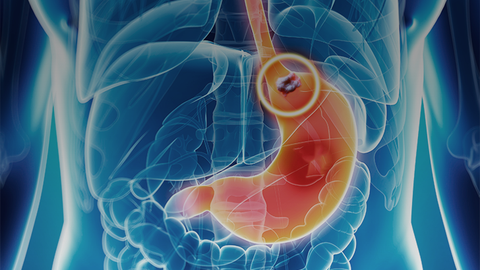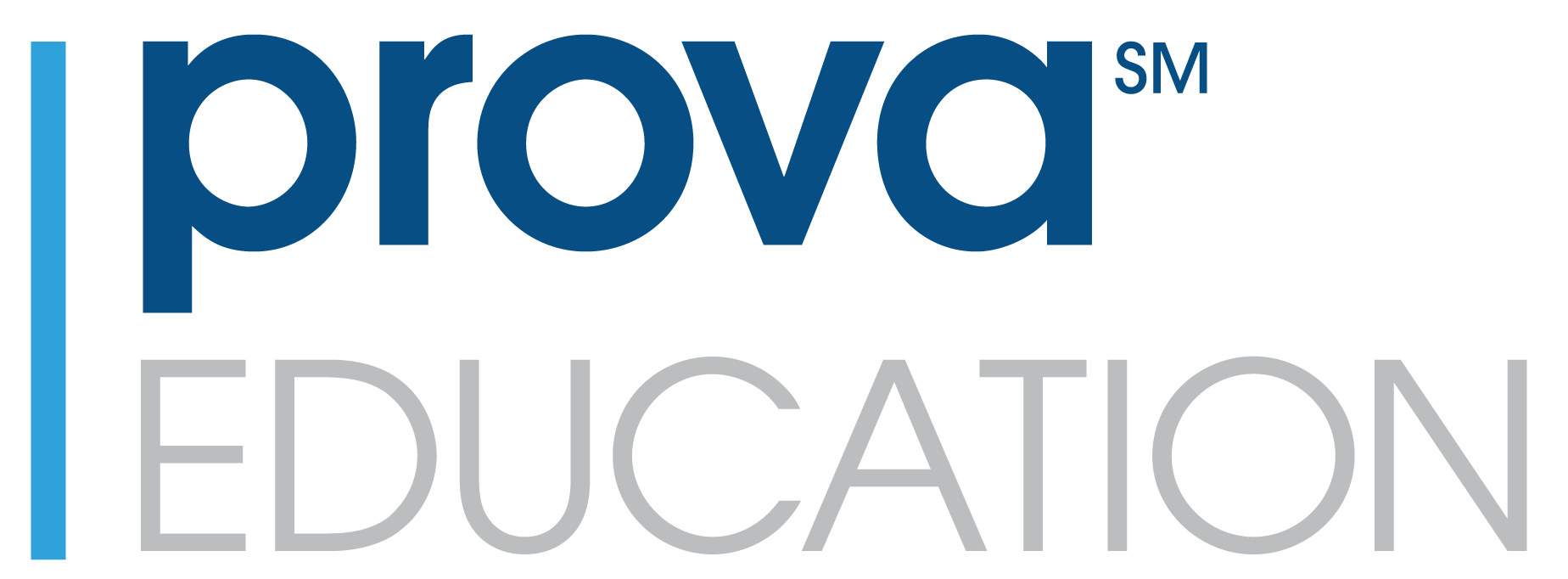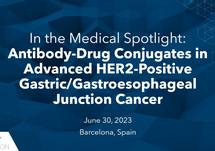Join our international multidisciplinary panel of experts in a deep dive into the nuances and next phases of care for patients with gastric/gastroesophageal junction (G/GEJ) cancers. Through engaging presentations and discussions, the panel will address key aspects of patient management including optimizing biopsies, implications of HER2 testing results on treatment, and future directions in second-line therapy for HER2-positive G/GEJ cancers.
In the Medical Spotlight: Antibody-Drug Conjugates in Advanced HER2-Positive Gastric/Gastroesophageal Junction Cancer
Are you and your team incorporating the latest data on HER2-positive gastric/gastroesophageal junction cancers into practice?
Plaça de Willy Brandt, 11–14 08019, Room 111 – 112, Barcelona, Spain

Program Schedule*
13:30
Welcome and Introductions
John Marshall, MD13:35
HER2 Heterogeneity: Clinical Implications
Mar Iglesias, MD
13:50
Panel Discussion and Audience Q&A
All faculty14:00
Unmet Needs in Second-Line HER2+ Gastric/Gastroesophageal Junction Cancer
Elizabeth Smyth, MD14:15
Panel Discussion and Audience Q&A
All faculty14:25
Current Conundrums and Emerging Directions
John Marshall, MD
14:40
Panel Discussion and Audience Q&A
All faculty
14:50
Our Message Worth Sharing: Key Takeaways and Wrap-Up
John Marshall, MD
15:00
Conclusion
*Subject to change
Disclosure of Conflicts of Interest
In accordance with the ACCME Standards for Integrity and Independence, Global Learning Collaborative (GLC) requires that individuals in a position to control the content of an educational activity disclose all relevant financial relationships with any ineligible company. GLC mitigates all conflicts of interest to ensure independence, objectivity, balance, and scientific rigor in all its educational programs.
Host:
John L. Marshall, MD
Professor of Medicine and Oncology
Lombardi Comprehensive Cancer Center
Georgetown University
Washington, DCConsulting Fees: AstraZeneca, Bayer Corporation, Caris, Merck & Co., Inc., Pfizer, Seagen, Taiho Oncology.
Employee of an ineligible company: IndivumedFaculty:
Elizabeth Smyth, MD
GI Consultant Oncologist
Oxford University Hospital
NHS Foundation Trust
Oxford, UKConsulting Fees: Amgen, Astellas, AstraZeneca, BeiGene, Bristol Myers Squibb, Daiichi Sankyo, Inc., Elsevier, Imdex, Merck, Novartis, Pfizer, SAI Med, Servier, touchONCOLOGY, Turning Point Therapeutics, Viracta, Zymeworks
Mar Iglesias, MD
Pathologist
Associated Professor, Pathology Department
Hospital del Mar
Universitat Pompeu Fabra
Barcelona, SpainConsulting Fees: Astellas, Bristol Myers Squibb, Merck, MSD, Roche
Research: AstellasReviewers/Content Planners/Authors:
- Jorge Bacigalupo has nothing to disclose.
- Cindy Davidson has nothing to disclose.
- Ann Early has nothing to disclose.
- Sara Fagerlie has nothing to disclose.
- Andrea Mathis has nothing to disclose.
- Tim Person has nothing to disclose.
- Rosanne Strauss, PharmD, has nothing to disclose.
Learning Objectives
After participating in this educational activity, participants should be better able to:
- Collaborate with pathologists to recognize the clinical implications of HER2 heterogeneity in gastric/gastroesophageal junction (G/GEJ) cancer
- Collaboratively employ biomarker-based testing to improve personalization of therapy in advanced G/GEJ cancer
- Compare and contrast clinical trial successes and failures in the second-line treatment of advanced HER2-positive G/GEJ cancer
- Identify patients eligible for HER2-directed therapies that offer both improved survival outcomes and quality of life in the second-line treatment of advanced HER2-positive G/GEJ cancer
- Assess the current and potential future standard of care of advanced HER2-positive G/GEJ cancer in the second-line setting, including HER2-low amplification
- Recognize the role of emerging therapies in earlier lines of treatment for HER2-positive G/GEJ cancer
Target Audience
This activity is designed to meet the educational needs of medical oncologists and pathologists.
Accreditation and Credit Designation Statements

In support of improving patient care, Global Learning Collaborative (GLC) is jointly accredited by the Accreditation Council for Continuing Medical Education (ACCME), the Accreditation Council for Pharmacy Education (ACPE), and the American Nurses Credentialing Center (ANCC) to provide continuing education for the healthcare team.
The American Medical Association has an agreement of mutual recognition of Continuing Medical Education (CME) credits with the European Union of Medical Specialists (UEMS), the accreditation body for European countries. Physicians interested in converting AMA PRA Category 1 Credits™ to UEMS-European Accreditation Council for Continuing Medical Education CME credits (ECMECs) should contact the UEMS at mutualrecognition@uems.eu.
Global Learning Collaborative (GLC) designates this live activity for a maximum of 1.5 AMA PRA Category 1 Credits™. Physicians should claim only the credit commensurate with the extent of their participation in the activity.
Global Learning Collaborative (GLC) designates this activity for 1.5 nursing contact hours. Nurses should claim only the credit commensurate with the extent of their participation in the activity.
Provider(s)/Educational Partner(s)


Prova Education designs and executes continuing education founded on evidence-based medicine, clinical need, gap analysis, learner feedback, and more. Our mission is to serve as an inventive and relevant resource for clinical content and educational interventions across a broad spectrum of specialties.
Prova Education's methodology demonstrates a commitment to continuing medical education and the innovative assessment of its effects. Our goal is clear—to develop and deliver the very best education in the most impactful manner and to verify its results with progressive outcomes research.
Commercial Support
This activity is supported by an independent educational grant from Daiichi Sankyo, Inc.
Disclaimer
The views and opinions expressed in this educational activity are those of the faculty and do not necessarily represent the views of GLC and Prova Education. This presentation is not intended to define an exclusive course of patient management; the participant should use his/her clinical judgment, knowledge, experience, and diagnostic skills in applying or adopting for professional use any of the information provided herein. Any procedures, medications, or other courses of diagnosis or treatment discussed or suggested in this activity should not be used by clinicians without evaluation of their patients’ conditions and possible contraindications or dangers in use, review of any applicable manufacturer’s product information, and comparison with recommendations of other authorities. Links to other sites may be provided as additional sources of information. Once you elect to link to a site outside of Prova Education you are subject to the terms and conditions of use, including copyright and licensing restriction, of that site.
Reproduction Prohibited
Reproduction of this material is not permitted without written permission from the copyright owner.System Requirements
Our site requires a computer, tablet, or mobile device and a connection to the Internet. For best results, a high-speed Internet connection is recommended (DSL/Cable/Fibre). We also recommend using the latest version of your favorite browser to ensure compliance with W3C standards, such as Chrome, Safari, Firefox, or Microsoft Edge.
Related

Downloadable Slides
Show more
Overview
Join our international multidisciplinary panel of experts in a deep dive into the nuances and next phases of care for patients with gastric/gastroesophageal junction (G/GEJ) cancers. Through engaging presentations and discussions, the panel will address key aspects of patient management including optimizing biopsies, implications of HER2 testing results on treatment, and future directions in second-line therapy for HER2-positive G/GEJ cancers.
Program Schedule*
13:30
Welcome and Introductions
John Marshall, MD13:35
HER2 Heterogeneity: Clinical Implications
Mar Iglesias, MD
13:50
Panel Discussion and Audience Q&A
All faculty14:00
Unmet Needs in Second-Line HER2+ Gastric/Gastroesophageal Junction Cancer
Elizabeth Smyth, MD14:15
Panel Discussion and Audience Q&A
All faculty14:25
Current Conundrums and Emerging Directions
John Marshall, MD
14:40
Panel Discussion and Audience Q&A
All faculty
14:50
Our Message Worth Sharing: Key Takeaways and Wrap-Up
John Marshall, MD
15:00
Conclusion
*Subject to change
Disclosure of Conflicts of Interest
In accordance with the ACCME Standards for Integrity and Independence, Global Learning Collaborative (GLC) requires that individuals in a position to control the content of an educational activity disclose all relevant financial relationships with any ineligible company. GLC mitigates all conflicts of interest to ensure independence, objectivity, balance, and scientific rigor in all its educational programs.
Host:
John L. Marshall, MD
Professor of Medicine and Oncology
Lombardi Comprehensive Cancer Center
Georgetown University
Washington, DCConsulting Fees: AstraZeneca, Bayer Corporation, Caris, Merck & Co., Inc., Pfizer, Seagen, Taiho Oncology.
Employee of an ineligible company: IndivumedFaculty:
Elizabeth Smyth, MD
GI Consultant Oncologist
Oxford University Hospital
NHS Foundation Trust
Oxford, UKConsulting Fees: Amgen, Astellas, AstraZeneca, BeiGene, Bristol Myers Squibb, Daiichi Sankyo, Inc., Elsevier, Imdex, Merck, Novartis, Pfizer, SAI Med, Servier, touchONCOLOGY, Turning Point Therapeutics, Viracta, Zymeworks
Mar Iglesias, MD
Pathologist
Associated Professor, Pathology Department
Hospital del Mar
Universitat Pompeu Fabra
Barcelona, SpainConsulting Fees: Astellas, Bristol Myers Squibb, Merck, MSD, Roche
Research: AstellasReviewers/Content Planners/Authors:
- Jorge Bacigalupo has nothing to disclose.
- Cindy Davidson has nothing to disclose.
- Ann Early has nothing to disclose.
- Sara Fagerlie has nothing to disclose.
- Andrea Mathis has nothing to disclose.
- Tim Person has nothing to disclose.
- Rosanne Strauss, PharmD, has nothing to disclose.
Learning Objectives
After participating in this educational activity, participants should be better able to:
- Collaborate with pathologists to recognize the clinical implications of HER2 heterogeneity in gastric/gastroesophageal junction (G/GEJ) cancer
- Collaboratively employ biomarker-based testing to improve personalization of therapy in advanced G/GEJ cancer
- Compare and contrast clinical trial successes and failures in the second-line treatment of advanced HER2-positive G/GEJ cancer
- Identify patients eligible for HER2-directed therapies that offer both improved survival outcomes and quality of life in the second-line treatment of advanced HER2-positive G/GEJ cancer
- Assess the current and potential future standard of care of advanced HER2-positive G/GEJ cancer in the second-line setting, including HER2-low amplification
- Recognize the role of emerging therapies in earlier lines of treatment for HER2-positive G/GEJ cancer
Target Audience
This activity is designed to meet the educational needs of medical oncologists and pathologists.
Accreditation and Credit Designation Statements

In support of improving patient care, Global Learning Collaborative (GLC) is jointly accredited by the Accreditation Council for Continuing Medical Education (ACCME), the Accreditation Council for Pharmacy Education (ACPE), and the American Nurses Credentialing Center (ANCC) to provide continuing education for the healthcare team.
The American Medical Association has an agreement of mutual recognition of Continuing Medical Education (CME) credits with the European Union of Medical Specialists (UEMS), the accreditation body for European countries. Physicians interested in converting AMA PRA Category 1 Credits™ to UEMS-European Accreditation Council for Continuing Medical Education CME credits (ECMECs) should contact the UEMS at mutualrecognition@uems.eu.
Global Learning Collaborative (GLC) designates this live activity for a maximum of 1.5 AMA PRA Category 1 Credits™. Physicians should claim only the credit commensurate with the extent of their participation in the activity.
Global Learning Collaborative (GLC) designates this activity for 1.5 nursing contact hours. Nurses should claim only the credit commensurate with the extent of their participation in the activity.
Provider(s)/Educational Partner(s)


Prova Education designs and executes continuing education founded on evidence-based medicine, clinical need, gap analysis, learner feedback, and more. Our mission is to serve as an inventive and relevant resource for clinical content and educational interventions across a broad spectrum of specialties.
Prova Education's methodology demonstrates a commitment to continuing medical education and the innovative assessment of its effects. Our goal is clear—to develop and deliver the very best education in the most impactful manner and to verify its results with progressive outcomes research.
Commercial Support
This activity is supported by an independent educational grant from Daiichi Sankyo, Inc.
Disclaimer
The views and opinions expressed in this educational activity are those of the faculty and do not necessarily represent the views of GLC and Prova Education. This presentation is not intended to define an exclusive course of patient management; the participant should use his/her clinical judgment, knowledge, experience, and diagnostic skills in applying or adopting for professional use any of the information provided herein. Any procedures, medications, or other courses of diagnosis or treatment discussed or suggested in this activity should not be used by clinicians without evaluation of their patients’ conditions and possible contraindications or dangers in use, review of any applicable manufacturer’s product information, and comparison with recommendations of other authorities. Links to other sites may be provided as additional sources of information. Once you elect to link to a site outside of Prova Education you are subject to the terms and conditions of use, including copyright and licensing restriction, of that site.
Reproduction Prohibited
Reproduction of this material is not permitted without written permission from the copyright owner.System Requirements
Our site requires a computer, tablet, or mobile device and a connection to the Internet. For best results, a high-speed Internet connection is recommended (DSL/Cable/Fibre). We also recommend using the latest version of your favorite browser to ensure compliance with W3C standards, such as Chrome, Safari, Firefox, or Microsoft Edge.
Related

Downloadable Slides
Show more
Facebook Comments
Recommended
ATTR Amyloidosis: Familial Vs Wild-Type
ATTR Amyloidosis: Familial Vs Wild-Type
MinuteCE®ATTR Amyloidosis: Familial Vs Wild-Type
1.00 program credit1.00 program creditRaising the Red Flag: What's Your Index of Suspicion for ATTRv-PN?
Raising the Red Flag: What's Your Index of Suspicion for ATTRv-PN?
MinuteCE®Raising the Red Flag: What's Your Index of Suspicion for ATTRv-PN?
1.00 program credit1.00 program creditATTRv-PN: A Family Affair?
ATTRv-PN: A Family Affair?
MinuteCE®ATTRv-PN: A Family Affair?
1.00 program credit1.00 program creditShh…Gene-Silencing Therapies for ATTRv-PN
Shh…Gene-Silencing Therapies for ATTRv-PN
MinuteCE®Shh…Gene-Silencing Therapies for ATTRv-PN
1.00 program credit1.00 program credit













Facebook Comments